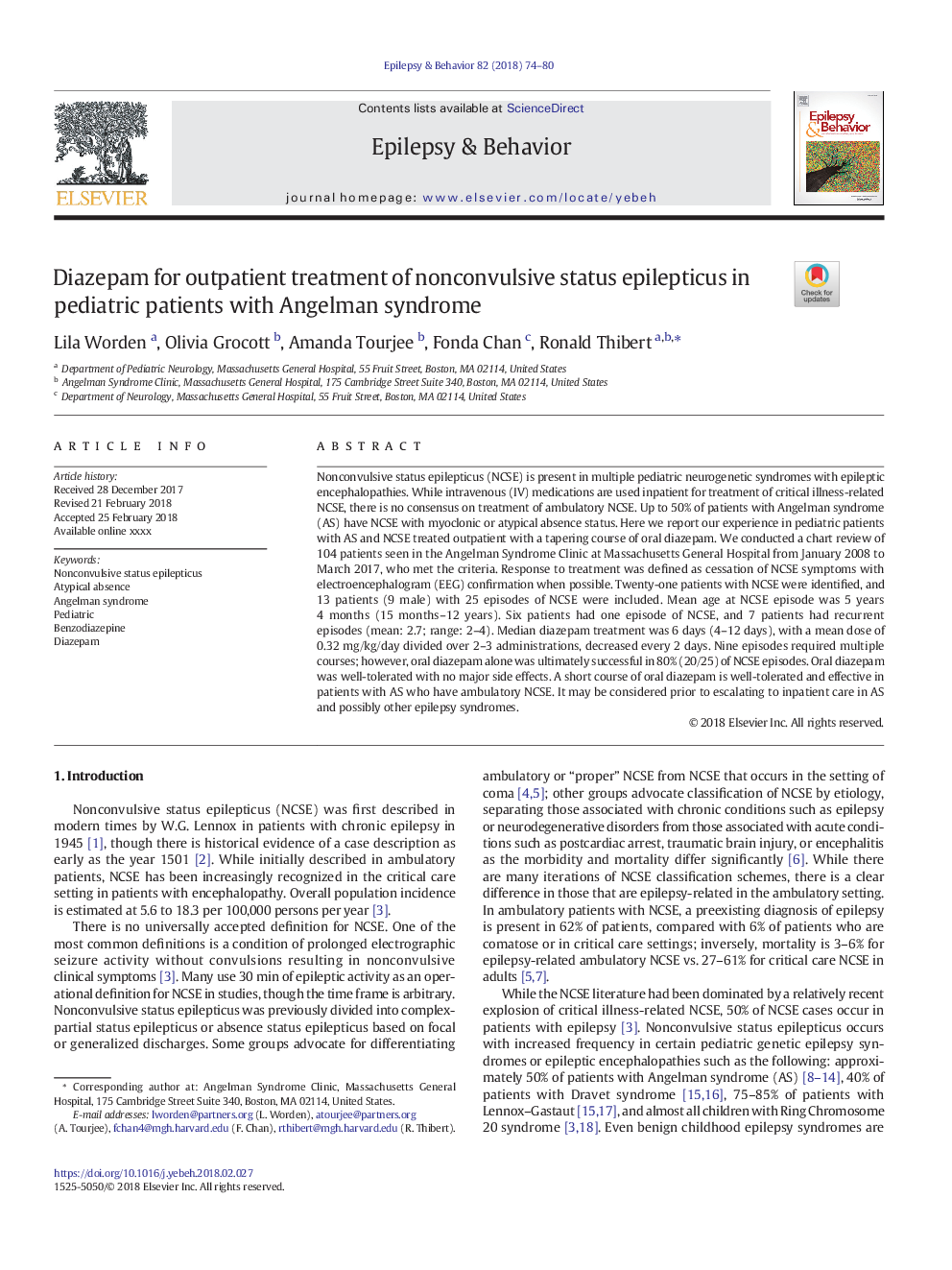ترجمه فارسی عنوان مقاله
دیازپام برای درمان سرپایی در بیماران مبتلا به سندرم انجلمن
عنوان انگلیسی
Diazepam for outpatient treatment of nonconvulsive status epilepticus in pediatric patients with Angelman syndrome
| کد مقاله | سال انتشار | تعداد صفحات مقاله انگلیسی |
|---|---|---|
| 121278 | 2018 | 7 صفحه PDF |
منبع

Publisher : Elsevier - Science Direct (الزویر - ساینس دایرکت)
Journal : Epilepsy & Behavior, Volume 82, May 2018, Pages 74-80

